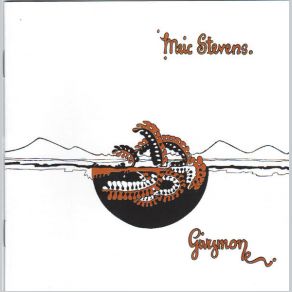Gwymon
Download links and information about Gwymon by Meic Stevens. This album was released in 1972 and it belongs to World Music, Songwriter/Lyricist, Celtic genres. It contains 14 tracks with total duration of 46:56 minutes.

|
|
|---|---|
| Artist: | Meic Stevens |
| Release date: | 1972 |
| Genre: | World Music, Songwriter/Lyricist, Celtic |
| Tracks: | 14 |
| Duration: | 46:56 |
| Buy it NOW at: | |
| Buy on iTunes $9.99 | |
Tracks
[Edit]| No. | Title | Length |
|---|---|---|
| 1. | Shw' Mae? Shw' Mae? | 4:15 |
| 2. | Brenin Y Nôs | 2:29 |
| 3. | Cura Dy Law | 3:22 |
| 4. | Traeth Anobaith | 3:16 |
| 5. | O Môr Lan Yr Oedd Y Dwr | 2:48 |
| 6. | Galarnad | 2:52 |
| 7. | Merch o'r Ffatri Wlan | 2:38 |
| 8. | Gwely Gwag | 3:15 |
| 9. | Mynd i Weld y Byd | 3:22 |
| 10. | Daeth Neb yn Ôl | 4:01 |
| 11. | Carangarw | 3:16 |
| 12. | Mae'r Eliffant yn Cofio Popeth | 3:36 |
| 13. | Dic Penderyn | 5:19 |
| 14. | Santiana | 2:27 |
Details
[Edit]After the commercial failure of Meic Stevens' early-'70s Warner Bros. LP Outlander, the singer/songwriter — whose Warners contract did not give the label jurisdiction over his Welsh-language material — decided to record an album of Welsh songs in 1972, released on the Wren label. Those listeners in the English-speaking world who know of Stevens' work primarily through English-language recordings such as Outlander will naturally find the tracks on Gwymon harder to penetrate. The essence of Stevens' folk-rock style is still evident, however, in his committed vocals and his rather musically basic if stylistically diverse tunes. They were simply recorded, too, with one day given to laying the tracks down, and another to mixing. At times ("Cura Dy Law," "Mynd") he sounds like a more rustic Van Morrison; at others he has the somewhat subdued moodiness common to many folk-rock singer/songwriters of the era from the British Isles; and sometimes a pretty acid-folk bent comes to the fore ("Merch of Ffatri Wlan"). Blues informs a few numbers, like "Gwely Gwag" and "Mae'r Ellifant Yn Cofio Popeth," and on still others ("O Mor Lan yr Oedd y Dwr"), the uplifting, declamatory side of traditional British folk makes itself evident. The 2008 CD reissue on Sunbeam includes historical liner notes by Stevens (in English), as well as two bonus tracks recorded live in Bangor in 1974.